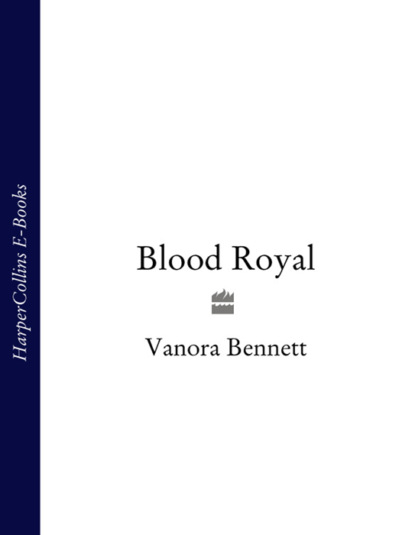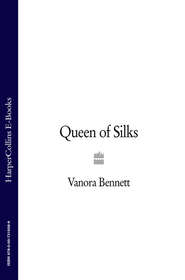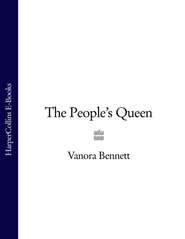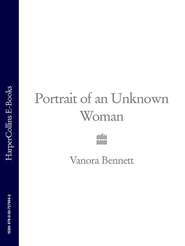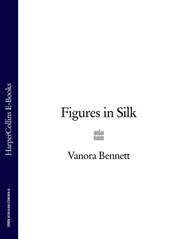По всем вопросам обращайтесь на: info@litportal.ru
(©) 2003-2024.
✖
Blood Royal
Настройки чтения
Размер шрифта
Высота строк
Поля
She stared back. ‘Who?’ she said, without expression.
‘Marie of Anjou,’ he whimpered, and his face puckered up again.
Catherine could see why. Their ten-year-old cousin Marie was solemn and very grand; always too worried about spoiling her beautiful and expensive clothes to want to play. ‘Big-nose!’ Charles wailed. ‘I don’t even like her!’
But Catherine could see why her mother would want this marriage. Marie’s father was one of the most important of the French princes who opposed the Duke of Burgundy. Known as the King of Sicily, Marie’s father was just back from years abroad, fighting over his various Italian land claims, to formally swear his loyalty to the princes allied, under the Count of Armagnac, against the common enemy, Burgundy. They’d need to keep him sweet with a good marriage (and what could be better than a marriage to the King’s youngest son?). The situation was more dangerous than ever. She’d heard the pilgrim gossip on the road. Louis had written to her cousin of Burgundy, denouncing the Queen for making wrongful arrests of his men – and inviting Burgundy and his army back to Paris to save him from his mother. There was more trouble brewing, for sure.
Thinking aloud, she told Charles: ‘It’s not so bad … you might get to bring your bride here … we could be together still … and if you have to go to them, it’s only over the road to the Anjou hotel …’
‘No,’ he squealed, back in his panic, burrowing once more into her arms. ‘That’s the whole point! Mother says I’ll have to go away! Right after the betrothal! To her mother’s court! To Angers! I’ve been looking for you all day! But you weren’t here! There was no one to tell! There was no one to tell!’
She clung to him, shocked; a child again too, feeling her brother’s warmth, committing it to memory. Angers was two days’ ride south-west. She’d never see Charles if he was there. She bitterly regretted leaving him alone here, now she was forced to imagine him gone for good. She didn’t want him to go. They were safe together. They were allies. They trusted each other; loved each other. There was no one else left. Owain would be gone too. There would be no one she could talk to. She shut her eyes.
She didn’t want to be left behind, on her own.
SEVEN (#ulink_f81c5fb6-92fa-5feb-a7f9-71007608a0bb)
Christine knew what Owain was going to say as soon as he walked into the scriptorium the next morning.
Anastaise grinned cheerfully at him, about to make one of her jokes about students. Then she stopped. He had his own travelling clothes on, not Jean’s cast-offs. He had his pack on his arm.
Christine stepped forward. She walked Owain to the window, away from Anastaise. She stared down at the burned-out house opposite. So many things had gone wrong here; it seemed the right place to hear this.
‘Thank you for all your kindness,’ Owain said, very formally. ‘But I think after all I shouldn’t take up that place you found me at the University.’
She nodded. She’d known he would go.
She’d sensed his anger all through the silent ride back from Poissy. Never more than when, as she’d determinedly trotted her horse between his and Catherine’s to make sure there were no more possibilities for contact, she’d heard him mutter, ‘… building walls around the Rose’.
She’d thought: He’s quoting. She’d known: he was quoting from the Romance of the Rose. He’d read it, despite her hatred of it. He wanted her to know he’d defied her. He was making her out to be Jealousy, building a tower to keep him from his love – blaming her for the cruelty of life, which was none of her doing.
The look that had passed between them then – quiet, intense anger – had meant farewell. The rest had been only a question of time.
She could see why he would go. Owain must have believed, for a while, that if he came to live in Paris he could escape the burden of his own reduced status altogether. She, Christine, had perhaps been too quick to encourage him in that belief. She’d been so taken with his spirited refusal to be cast down by bad luck; by the optimism that warmed everyone around him. Now he’d suddenly seen that he could never get away altogether from what the lost Welsh war had made him. The solace he thought he’d find in Paris had vanished once he’d realised that, even here, he still wasn’t good enough for what he wanted most. Which, after all, wasn’t learning, or friends, but just the usual goal of young men at the start of their lives: a girl, a love, and the one he wanted was right out of his reach. It was natural for him to be confused and angry. He was doing the right thing. He had to go; had to grapple with his own problems, alone. She just wished her heart didn’t feel as empty as the charred shell of a home out there, over the street.
‘Where will you go?’ she asked.
‘Back to my master,’ he replied, equally shortly.
She was so sorry for him; and so sad for herself. She’d miss him. But there was no more to say.
She followed him out into the courtyard. ‘Wait,’ she said.
He stopped, warily.
She ran back to the scriptorium, took up a book from the shelf, and, trying to ignore Anastaise’s astonished eyes, ran back to give it to the tall Welshman.
She said, in a shy rush: ‘You’re an intelligent man. Make yourself a learned one too, one day.’
And the ghost of a smile came to her face.
Owain softened. ‘I will,’ he said quietly; ‘I promise.’ Then he added, in a mutter: ‘And I’m sorry. About. I didn’t mean … to abuse your trust …’
No more words would come. But she was grateful for the few she’d heard.
Her eyes were stinging as she shut the courtyard door behind him. He was a good man; a noble man.
Owain still had the book in his hand when he came to mount his horse.
He looked at it through a blinding fog.
It was one of Christine’s odd, personal love poems.
He opened it, right there in the stable, ignoring the restless pawing of the animal’s hoofs in the straw, and began to read.
… the young lover had no name; Christine called him only the Duke of True Lovers. He was still only a child when he suddenly fell deeply in love with a married lady of royal blood, whom he had seen a hundred times without feeling anything. It was love at its purest, he believed, since he was still too young to feel desire. He persuaded his parents to invite the lady to stay, which she did for a whole summer. Blonde as amber, the lady sat beside him and his mother at a tournament in a meadow beside a lake, and on the first day the company was dressed all in green, and on the next day all in white and gold. The lover was too timid to tell of his love, so he suffered in silence, relieving his feelings only by writing love poems he was too shy to deliver. At last, the lady’s husband sent for her to go home, and the boy fell into despair. It was only when his cousin took pity on him and told the lady of his love that she understood why. She was flattered and touched, and hesitantly wrote to him to tell him she loved him too.
… The pair began, secretly and blissfully, to meet and talk…. but finally, feeling her honour compromised, the lady told the lover to leave her. The lover fainted on getting her letter and was as distraught as she. He was ready to go and die overseas if she wished; but stop loving her he never could. He set off abroad … but their love would never change …
There was a great tenderness in Owain’s heart as he closed the little book. He wound a cloth carefully round it and slipped it into the saddlebag. Perhaps, after all, Christine hadn’t condemned him utterly for falling victim to an impossible love. Perhaps she’d understood him better, all along, than he’d realised.
He’d never know. He wouldn’t see her again, or know the illusory happiness of these past weeks. The answers he thought he’d found here were too easy.
There was only sorrow ahead. He couldn’t bear to think of Catherine. Not yet. Not till he’d got away.
But at least he wanted to believe this gift was a gesture of forgiveness.
The Queen looked at Catherine, standing in the church, trying not to cry as her red-eyed brother was betrothed to Marie of Anjou. ‘Don’t you think it’s time you stopped seeing so much of that disagreeable Madame de Pizan,’ Isabeau whispered, too loudly. It wasn’t really a question. When the litters reached the Hotel Saint-Paul, Catherine saw her possessions were being moved into her mother’s house. The days of picnics with Christine were over. She’d stopped being a child.
Catherine knew that moving in with her mother meant there’d be less escape than ever before from the Queen’s simmering hostilities with Louis (though, since Isabeau had forced Louis to retract his written request for the Duke of Burgundy to bring an army to liberate Paris from his mother, and in return had let him cut off his allowance to his wife Marguerite, whom he’d sent to live in poverty at Saint-Germain, the heat had gone out of that hatred – at least for now). Still, Catherine wasn’t altogether sorry for the change.
She’d been mortified by her last conversation with Christine. She knew Christine had meant to be as subtle and sensitive as one of the clever attendants in her love poems when she’d sidled up to Catherine just before the betrothal ceremony and begun, in roundabout fashion, to give her a little talk about blood and what it meant to be royal. Charles’ marriage was good, because a royal union, in spite of all his fears and tears. Catherine, one day soon, could also look forward to a royal union, a marriage of equals. Royal blood was a compact with God. Princes were the finest of the fine. Their blood was not to be diluted; tainted; made impure by contact with lesser mortals, or God would be angered. Catherine had heard it before. She didn’t want to hear it now.
So she could think of nothing to say back. She just shook her head and nodded, over and over, until the nods and shakes got muddled and her eyes screwed up with the effort of politeness. When Christine didn’t stop, Catherine had eventually just walked away. ‘I have to go to Charles,’ she’d muttered.
Whatever had possessed her, to think that any wilful action on her part could change her fate? Dashing off into the forest; discussing the possibility of the English marriage with her sister; talking so much with Owain; letting Owain … letting herself … the heat of that embrace …
It was too painful to dwell on. She knew better now; knowledge was branded humiliatingly on her. There was nothing she would ever be able to do to change her circumstances. She wasn’t a Christine, or an Owain, whose lives could be altered by determined acts of will or thought. She shouldn’t try. She was nothing but a receptacle for her royal blood. Her duty as a princess was decorously to do nothing. It was a bitter lesson. Now she needed time to make her peace with herself. And time on her own was the only thing that being a nearly forgotten part of her mother’s eccentric household would guarantee her.
Christine’s Jean, who (God willing) had found a permanent professional home with Chancellor Henri de Marle, was put to work on negotiating the English marriage. The stories he came home with, as the summer of 1414 curdled into a miserable winter, horrified his family, especially Christine.
The new King of England’s negotiating style was a ruthless mixture of threat and promise. As Christine had feared, he was turning the negotiations into the pretext for full-scale war on France.
Henry of England was claiming as rightfully his all the French lands that last century’s English kings had fought for, and which, after capturing old King Jean the Good, had been granted on paper – a third of France. But this Henry wanted even more than the rightful kings of England had: he was also demanding the duchy of Normandy, which once, centuries ago, had belonged to the ancestors of the English kings, and all the lands in the south and west that had ever been controlled from England – he wanted even the lands that English kings had explicitly given up claims to a hundred years ago.
Jean de Castel wrinkled his forehead as he told his mother the list of demands. Henry of England wanted the lordships of Normandy, Anjou, Touraine, Maine. He wanted the homage of Brittany and Flanders. He wanted full sovereignty over the duchy of Aquitaine, not just the little strip of Gascony that the English still actually held, along with Poitou, Quercy, the Limousin and the Agenais. In the north, he wanted to add to the English territory of Calais and its march the counties of Ponthieu, Guisnes and Montreuil. He also wanted northern lands between the Somme river and Gravelines; half the county of Provence in the south; and the castles and lordships of Beaufort and Nogent.
On top of that, he wanted eight million crowns in cash – a fantasy figure.





